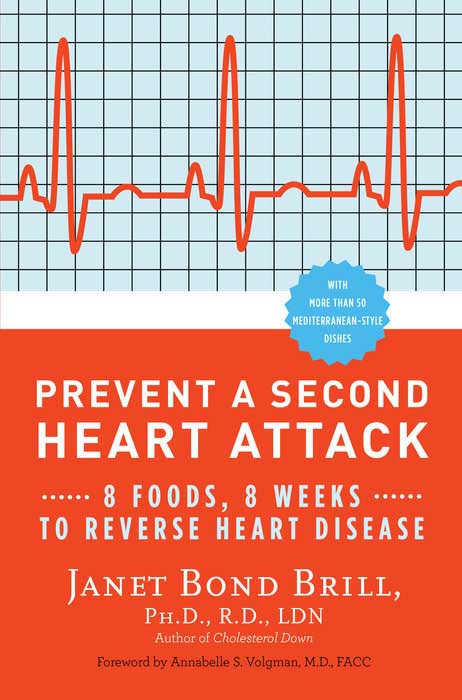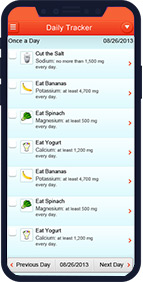John Wiley & Sons, Inc.; Nov 2020
So, you want to begin an intermittent fasting plan and embark on a leaner, healthier and longer life? You probably have already heard about this wildly popular health and fitness diet plan. Intermittent fasting continues to be one of the top google trending diet searches of the year.
The science is in—intermittent fasting has extraordinary health benefits. Intermittent fasting is the key that unlocks everything from sustainable weight and fat loss (especially that stubborn belly fat) to increased mental clarity and a serious boost in energy.
Simply by consuming all of your food within a designated time period, you can ramp up your metabolism, reduce the risk of disease, and supercharge your workout or diet program
No tedious calorie counting, weighing, measuring, or denying yourself your favorite foods. Too good to be true? No, but the trick—as with everything—is doing it in a safe and effective way and Intermittent Fasting For Dummies makes that easy, providing five of the most popular methods and 40+ recipes that will suit any lifestyle or diet.
Diets and health crazes come and go, but intermittent fasting, in particular, has been shown to have health benefits and has been around for a while. Is this something you should try? Will it work? How can you do it safely and reap the most benefits?
Dr. Janet answers the most frequently asked questions about Intermittent Fasting and the health benefits thereof.
Dr. Janet shows you how to choose the method that suits you best, as well as guiding you through the science behind intermittent fasting:

and delicious meals


and gain muscle

and prevent disease

Wherever you are in your health journey—seeking weight loss or maintaining to promote disease prevention or build muscle—Intermittent Fasting For Dummies shows you how to make the science of "too good to be true" into a truly effective part of your regular, healthy routine.
No matter if you're a beginner or more advanced intermittent faster, Intermittent Fasting for Dummies gives you advice and instructions in plain English to help you incorporate an intermittent fasting program in your life.
Discover the top 5 most popular versions of intermittent fasting and decide which one is right for you:
- The 16:8 method
- The Warrior intermittent fasting plan
- The Alternate Day intermittent fasting plan
- The 5:2 method
- The Eat-Stop-Eat intermittent fasting plan
of Your Regular, Healthy Routine
Associated with Intermittent Fasting
The science is in. Mounting scientific evidence supports the health benefits derived from following a plan of intermittent fasting. Here are 12 of the benefits that have the most scientific support:
- Promotes Weight and Fat Loss

Intermittent fasting can help you lose weight and belly fat, without having to consciously restrict calories. Intermittent fasting also amplifies enzymatic fat breakdown (lipolysis).
-
Reduces Insulin Resistance

Intermittent fasting can sensitize cells to insulin, reducing harmful insulin resistance and lowering blood sugar by 3 to 6 percent. Fasting insulin levels have been lowered by 20- 31% with intermittent fasting, all of which protect against type 2 diabetes.
Insulin secretion from the pancreas goes up due to an increase and regeneration of the beta cells of the pancreas (the cells that produce and secrete insulin).
-
Regulates Blood Sugar

When your blood sugar is constantly high, your insulin levels are constantly high. This leads to type 2 diabetes, which is a huge epidemic. Consistently high blood sugar levels (also known as hyperglycemia) cause damage to the insides of the arteries.
Hyperglycemia harms the vessels that supply blood to vital organs, which can increase the risk of heart disease and stroke, kidney disease, vision problems, and nerve problems.
-
Reduces Inflammation

Research shows that a program of intermittent fasting reduces blood markers of inflammation, a key driver of many chronic diseases. Oxidative stress is one of the factors that accelerates aging and predisposes you to developing disease.
Several studies show that intermittent fasting boosts the body's resistance to oxidative stress. Intermittent fasting strengthens immune function and enhances the body's ability to repair cells and DNA.
-
Promotes Cardiovascular Health

Intermittent fasting improves multiple indicators of cardiovascular health in both overweight and normal weight individuals.
Intermittent fasting reduces the following risk factors for heart disease — the leading cause of death in American men and women:
- Resting heart rate
- Blood pressure
- Bad LDL cholesterol
- Blood triglycerides
- Inflammation
- Blood sugar
- Insulin resistance
In addition, intermittent fasting lowers inflammation and oxidative stress, both causative factors associated with heart disease.
- Prevents and Treats Cancer

Some research suggests that intermittent fasting helps fight cancer by lowering insulin resistance and levels of inflammation. Intermittent fasting may also reverse the effects of chronic conditions such as obesity and type 2 diabetes, which are both risk factors for cancer.
Researchers believe that intermittent fasting suppresses tumor growth and extends survival in patients with cancer. Intermittent fasting may make cancer cells more responsive to chemotherapy while protecting other cells.
Intermittent fasting also boosts the immune system to help fight cancer that is already present.
-
Promotes Brain Health

Intermittent fasting increases production of brain-derived neurotrophic (BDNF), an anti-aging protein thought to protect against Alzheimer's disease by helping the brain produce new healthy cells and strengthen existing ones, improving cognition.
Intermittent fasting causes the cells in the body to initiate the cellular cleanup process called autophagy.
-
Promotes Psychological Benefits

Intermittent fasting improves eating behavior and mood. Intermittent fasting increases BDNF, the protein that aids in the growth of new nerve cells.
A deficiency of BDNF has been implicated in depression and various other brain problems. BDNF is food for the brain cells, keeping them flourishing, strong and healthy.
-
Treats Asthmatics and Multiple Sclerosis

With weight loss comes improvement in asthma symptoms and a reduction in airway resistance. Multiple Sclerosis (MS) is an autoimmune disorder characterized by degeneration of the nervous system.
Recent studies in people with MS adhering to intermittent fasting programs saw reduced symptoms in as short a period as two months.
- Fights Aging

Intermittent fasting can extend lifespan in rodents. Studies showed that fasted mice lived 36-83% longer! Although it's a far cry from mice to men, intermittent fasting has become very popular among the anti-aging crowd.
The health benefits of intermittent fasting on aging, oxidative stress, metabolism, and cardiovascular disease have been demonstrated in both human and animal studies alike.
- Promotes a Healthy Gut

The gut microbiome refers to all the microbes in your intestines, which act as another organ, crucial for your health. More than 1,000 species of bacteria are in the human gut microbiome, and each of them plays a different role in your body. Most of them are extremely important for your health, whereas others may cause disease such inflammatory bowel disease, liver cirrhosis, and colorectal cancer.
Scientific research has shown that intermittent fasting restores microbe health and diversity in the gut by increasing the good microbes, augmenting tolerance against bad gut microbes, and rebuilding the integrity of the intestinal wall.
- Regulates Sleep

Experts have recommended that adults get about seven to nine hours of sleep per night for good health. Intermittent fasting positively affects your circadian clock, which exerts a powerful influence over your sleep. Intermittent fasting strengthens the 24-hour circadian clock.
A stronger, more synchronized circadian clock means an easier time falling asleep, staying asleep, and waking feeling refreshed on a regular basis.
A good night's sleep will help you function at your best, and to protect your health over time, and with age.
Intermittent Fasting with Dr. Janet
 Intermittent fasting is one of the world's most popular health and fitness trends. Since intermittent fasting is a relatively a new phenomenon, you may have a host of questions that you want answered to help you determine whether intermittent fasting is right for you.
Intermittent fasting is one of the world's most popular health and fitness trends. Since intermittent fasting is a relatively a new phenomenon, you may have a host of questions that you want answered to help you determine whether intermittent fasting is right for you.
Here are some common questions and answers to help you make that decision:
- What is intermittent fasting?
Intermittent fasting is an eating pattern that cycles between periods of short-term fasting and eating. There are multiple intermittent fasting diet plans circulating. All of them dictate when you should eat rather than what specific foods you should eat.
One popular version, called the 16:8 method, means you fast for 16 hours every day and eat during your chosen 8 hour eating window. You repeat this pattern of eating every day. However, for long-term health benefits, it is highly recommended that you don't ignore the "what to eat" part of this eating regimen.
As a nutritionist, it is suggested that you combine a plant-based, Mediterranean style of eating with your intermittent fasting plan of choice.
- How many varieties of intermittent fasting plans are there?
There are several different ways of doing intermittent fasting such as the 16:8 method and the 5:2 diet. The top 5 of the most popular plans are outlined in my book.
- What are the benefits of following an intermittent fasting program?
Numerous scientific studies have shown that intermittent fasting programs can have powerful benefits for your body and brain.
Here are just a few of the notable health benefits:
- Promoting weight loss (especially loss of stubborn belly fat)
- Reducing insulin resistance and lowering blood sugar levels
- Boosting metabolic rate
- Improving numerous risk factors for heart disease such as blood pressure, cholesterol levels, triglycerides and inflammatory markers
- Fighting aging and boosting mental acuity
- Is intermittent fasting safe?
Intermittent fasting is safe for most people, but it's not for everyone. If you have a medical condition, you must get medical clearance to follow a program of intermittent fasting, especially if you have:
- Diabetes or problems with blood sugar regulation
- Have high or low blood pressure
- Take prescription medications (people who take medications for blood pressure or heart disease may be more prone to electrolyte abnormalities from fasting
- Are underweight
Intermittent fasting should NOT be practiced by:
- Children
- People with a history of eating disorders
- Women who are trying to conceive
- Women who are pregnant or breastfeeding
- Uncontrolled diabetics
- Is hunger hard to deal with when practicing intermittent fasting?
In the beginning, you'll feel hunger pangs during your fasting periods. Most intermittent fasting newbies figure out how to accept, adjust, and dull hunger pangs, which typically dissipate after about a month on an intermittent fasting program.
- Do you have to exercise when practicing intermittent fasting?
Yes, but no marathons are required! All Americans need to move more for better health. Because you're entering into a lifestyle program aimed at improving your health, this one does indeed advocate daily exercise.
- How long should you fast for?
You'll see health benefits from fasts of from 14 hours to 36 hours. The ideal fasting window and ultimately fasting regimen will vary depending on you. What matters is the duration of fasting that works for your lifestyle.
- Can you drink alcohol when practicing intermittent fasting?
Yes, you can during your eating windows, in moderation, and if you can drink responsibly. You should know that drinking any amount of alcohol increases your risk of seven different types of cancer.
- Can you have a cheat day during intermittent fasting?
One of the phenomenal attractions of intermittent fasting is the concept that you get lots of cheat days - built in. Technically, you can eat whatever you want during your eating windows. This simple idea of freedom in eating is very motivating — fast today for tomorrow you feast!
- Can you gain muscle when practicing intermittent fasting?
Yes, studies have shown that combining intermittent fasting with a program of strength-training designed to increase muscle mass will result in muscle gain and fat loss.
- Can you take medications and supplements when practicing intermittent fasting?
Yes, you must continue taking your prescription medications as directed (and should only practice intermittent fasting under the guidance of your personal healthcare provider).
If you need to take your meds with food, on a daily basis, choose an intermittent fasting plan that allows a daily window of eating for your medications.
Supplements, if they contain negligible calories, can be taken as usual. Check with your healthcare provider if you have any concerns.
- How long can you stay on a program of intermittent fasting?
If you are eating nutritious food and can maintain a healthy weight, you can eat this way indefinitely.
Read Dr. Janet's interview in The Dishh where she talks about why Intermittent Fasting is a lifestyle, not a fad diet, and her personal experience with Intermittent Fasting as a way of life.
with Intermittent Fasting

Sensible, Science-based Advice - to help you create an intermittent fasting plan that suits you

If you are experiencing a sluggish metabolism and want to try out a safe fasting plan to manage weight and feel more energized, this book is for you. I appreciate that Dr. Brill reviews the science behind potential health benefits of intermittent fasting in Chapter 5. I was provided a free copy of the book by the publisher but I plan to adopt some of these strategies myself since I'm aware of the anti-aging benefits of intermittent fasting. Chapter 6 is devoted to the myriad health benefits of intermittent fasting, including fat loss, reduced insulin resistance, reduced inflammation, better brain health, and even improved sleep. Exercise during a fast can be tricky, and the book covers when and how to do it. This book offers lots of great tips for intermittent periods of "feasting" and "fasting" and outlines several different safe-and-easy intermittent fasting plans to suit your needs.
Rosanne Rust, MS, RDN
Freelance Writer, Author, Nutrition Communications Consultant

"Very informative! I like the explanation of the different types of fasting. Thank you NetGalley for the opportunity to read this copy of Intermittent Fasting for Dummies by Dr. Janet Bond Brill.
#IntermittentFastingForDummies #NetGalley
essentialbookz

Absolute One-Stop Guide To Intermittent Fasting
The absolute one-stop guide to intermittent fasting. I have been curious about this newest eating craze and wondering if it might be right for me. I love how this guide breaks it all down into multiple sections for easy reference. It gives the rationale and science behind fasting. It provides cautions and things to consider before starting. So many questions are covered and answered, I felt like I was able to just reach out and ask and I would find the answer somewhere in the pages. I especially appreciated the section that broke down the different types of intermittent fasting plans. Knowing how to incorporate exercise into this eating plan is crucial and due justice is given to this topic. If you are considering this way of eating, or are just curious about the premise, this is the book you are looking for! I received a complimentary copy from the publisher via NetGalley and all opinions expressed are my own, freely given.
bmrawlins

Great Introduction To Intermittent Fasting
Dr. Brill starts out by explaining the different types of fasting. Next, she goes over the information needed to use this plan to lose weight, including calculating ideal weight, calories, and BMI. If a reader is more interested in the health aspect, as I was, he/she is advised to skip ahead. According to studies, intermittent fasting can dramatically affect health, cells, and hormones. The author eschews the popular keto diet, declaring it inappropriate to combine with intermediate fasting, and touting instead the Mediterranean eating plan. Dr. Brill also goes over some basic nutrition facts, and includes recipes.
Librarian007

Intermittent Fasting For Dummies by Dr. Janet Bond Brill is an easy to read resource for people who are interested in learning more about intermittent fasting. There is also a cheat sheet available to download online.
This book is broken down into seven parts: 1 - Getting Started with Intermittent Fasting, 2- Grasping the Health Benefits of Intermittent Fasting, 3- Evaluating the Most Popular Intermittent Fasting Plans, 4- Customizing Your Complete Intermittent Fast Plan, 5 - Intermittent Fasting Made Easy: Eating, Shopping, and Cooking, 6 - Using Tools for Success, and 7 - The Part of Tens.
There is so much information included in this book and the author recommends reading it how the information will best serve you. Some people may choose to read it cover to cover, while others can use the table of contents to target their focus on specific information. This is definitely an incredible resource on intermittent fasting.
Since I have been curious about intermittent fasting, I will definitely be re-reading this book to gain a better understanding!
I'm so grateful to Dr. Janet Bond Brill, For Dummies (Wiley), and NetGalley for providing me with a free copy of this ARC ebook in exchange for my honest review.
princessnikki131

Dr. Brill starts out by explaining the different types of fasting. Next, she goes over the information needed to use this plan to lose weight, including calculating ideal weight, calories, and BMI. If a reader is more interested in the health aspect, as I was, he/she is advised to skip ahead. According to studies, intermittent fasting can dramatically affect health, cells, and hormones. The author eschews the popular keto diet, declaring it inappropriate to combine with intermediate fasting, and touting instead the Mediterranean eating plan. Dr. Brill also goes over some basic nutrition facts, and includes recipes.
Fable

Intermittent Fasting for Dummies
Fantastic book! This book has so much to offer. It is not just about intermittent fasting it's about having a healthy body, choosing healthier foods, and nutrition. This is a great book to have on hand and the perfect resource. Whether you are trying to loose weight or just trying to get healthy, this is the perfect book to help. And what a great time to be looking for something like this. I would like to see how many people put loosing weight and getting fit on their list of New Years resolutions.
Just some of the things you will find in this book -
SMART goals - what are they and how to make them
Making friends with the scale :-/
Calories... calories in = calories out
Weight loss... Weekly calories burned greater than weekly calories eaten
Coffee!!!! Yes that is not a typo - I said coffee! It is encouraged! "YES!"
Mindful eating
Protein choices (other than meat)
Vegan and Vegetarian options - again YES!
How to read labels
AND... recipes!!! And good ones too. I have lots of them highlighted.
And that was just some of the things I found interesting or that fit my needs.
All-in-all this is an excellent book for EVERYBODY and I highly recommend it!
I voluntarily posted this review after receiving a copy of this book from RABT Book Tours & PR - Thank You!!
Wall-to-wall books

Love this road to Intermittent Fasting
Dr. Brill's new book, Intermittent Fasting for Dummies, is a great source of information for anyone looking to begin Intermittent Fasting! I have read other books on this subject and you leave wondering what science class should I sign up for. Not only is Dr. Brill's book easy to understand but she gives many informative hints along the way of the good, bad and what to watch out for while on this health journey. Also purchase post-its because you will want to mark you favorite sections! Would recommend to anyone who is interested in this subject of healthy living.
MT
Writing During the Pandemic, How a Dummies Book Saved my Sanity
Contributed To Bookpleasures.com By Dr. Janet Brill
It was the morning of March 3rd, 2020, a sunny beach day in Florida, when with eyes wide with fear I looked at my husband and said "Sam, half a million Americans will die from this virus, we need to pack up the dogs and drive home to Pennsylvania and hunker down." As a health professional and researcher, I had studied the 1918 Spanish flu and knew that this "novel" virus attacked more than just the lungs, as the 1918 virus had done. I knew this was going to be horrendous.
Dr. Janet shows you how to choose the method that suits you best, as well as guiding you through the science behind intermittent fasting:
Wherever you are in your health journey-seeking weight loss or maintaining to promote disease prevention or build muscle-Intermittent Fasting For Dummies shows you how to make the science of "too good to be true" into a truly effective part of your regular, healthy routine.
A revolutionary health plan for everyone! No matter if you're a beginner or more advanced intermittent faster, Intermittent Fasting for Dummies gives you advice and instructions in plain English to help you incorporate an intermittent fasting program in your life. Are you in? Listen to the program and get the book!
Listen to Dr Janet's Living Vertikal podcast
with Intermittent Fasting

